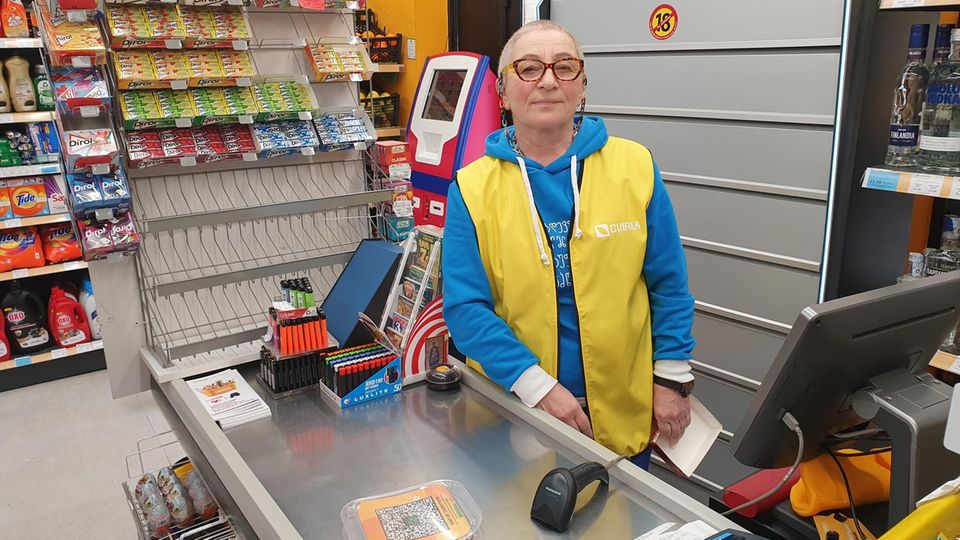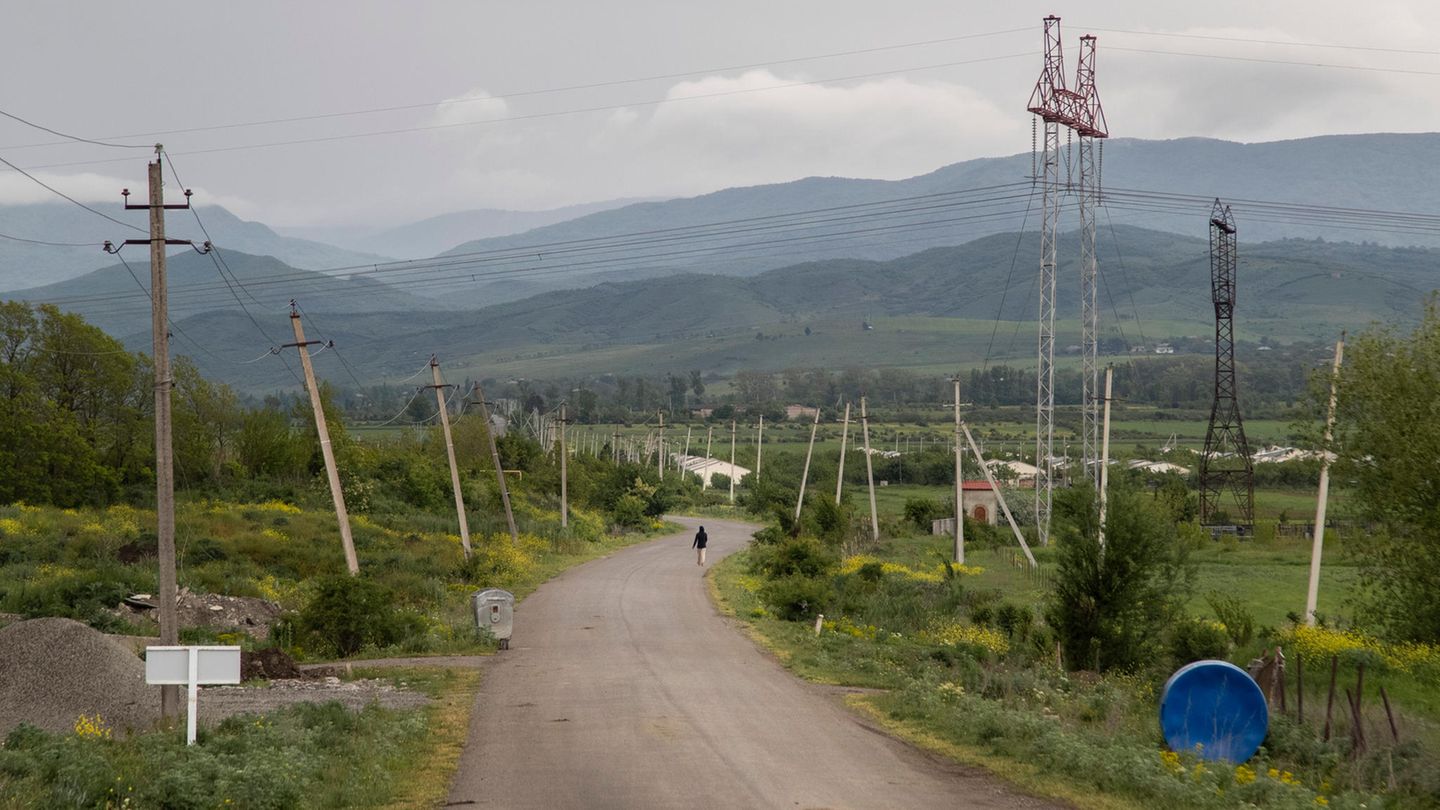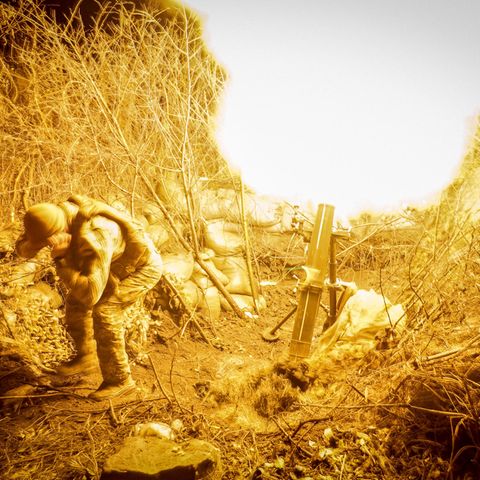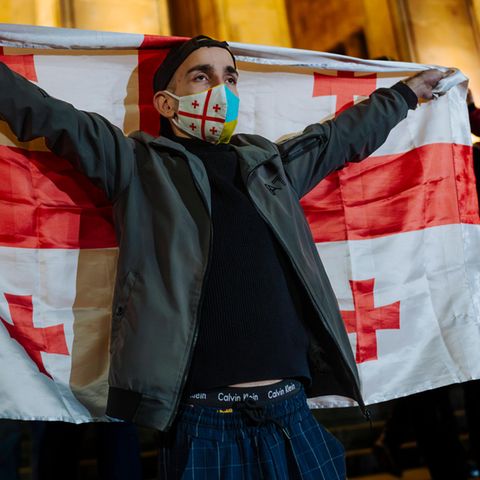Divided country
The other Georgia away from the demos – where Russia is not the enemy
Copy the current link
In the cities of Georgia, thousands of people demonstrate night after night against the government’s pro-Russian course. But in the countryside, the Kremlin is not necessarily the enemy.
For more than a week, Georgia has been experiencing the most violent demonstrations in two decades. And anyone who spends their time among the tens of thousands of demonstrators in Tbilisi demonstrating against their government’s decision to pause accession negotiations with the EU until 2028 will find the situation clear: an oligarch controlled by Russia has usurped power with his party Elections were falsified in order to lead the country with its almost four million inhabitants back into Moscow’s sphere of influence on Putin’s behalf.
In fact, OSCE observers also speak of irregularities in the election. In fact, opposition members are arrested and the police sometimes take brutal action against the demonstrators. But anyone who drives an hour out of the megacity of Tbilisi will meet Georgians who have a very different view of the situation, a view that shows that Georgia, like many countries on the edge of Russia’s orbit, is also divided; between those who definitely do not want to come back under the control of the Kremlin – and others who could at least come to terms with it.
Georgia – that’s also pigs on the side of the road, vines in the garden
The highway leads out of Tbilisi towards the northwest, past the almost 3,000-year-old city of Mtskheta. Soon the snow-covered peak of the five-thousander Kazbek appears in the north, over whose summit the state border with Russia runs. There are branches that lead over a mountain pass to Vladikavkaz in Russia, to the Azerbaijani capital Baku or to Yerevan in Armenia. If you continue straight on, you will reach the Georgian port city of Batumi. But after 70 kilometers we turn right off the highway onto an asphalt road, a turnoff to Kwemo Chala, a village of a thousand souls, vines in the gardens, a pig eating on the side of the road, a few cows grazing there.
But Kwemo Chala is a special village. If you drive another two kilometers on this road, you will meet Russian border guards: this is the border with South Ossetia, which declared itself independent in the early 1990s and has been “protected” by Russia ever since. In 2008, Georgia tried to retake the area, but Russia repulsed the attack and rolled its tanks a few kilometers further towards Tbilisi.
The villager Dato, who stands in front of his house in a turtleneck sweater and jeans and chats with two friends, still remembers well how the Russian armored personnel carriers moved into the village. Luckily there were no fights here. But the topic concerns him, especially since Russia’s attack on Ukraine. “Russia is big,” says the 63-year-old. “The EU and the USA have been fighting against Russia for two years and cannot defeat it. And nobody here wants war with Russia.”
Ruling party uses Ukraine war as election campaign ammunition
The “Georgian Dream”, the ruling party of billionaire Bidzina Ivanishvili, mercilessly exploited the Ukraine war in the election campaign: pictures of a destroyed Ukrainian school and a renovated Georgian school were shown, along with the question: Do you choose war or peace? The opposition was portrayed as a war party that would open a “second front” against Russia on behalf of the West. Here, a few minutes’ walk from the Russian border guards, the fear campaign appears to have found particularly fertile ground.
Georgia is a relatively urban country: around two thirds of the population lives in cities. And people are demonstrating against the government not only in Tbilisi, but also in Batumi and Kutaisi. But the conservative rural population made an above-average contribution to the “Georgian Dream” reaching a good 40 percent in the election, even according to opposition estimates.
Dato can’t find a bad word to say about the government. Opposite his house there has been a football pitch with artificial turf for three years, the kindergarten has been renovated, the village has finally been reconnected to the water supply and the street lighting is working again – this was last seen during the Soviet Union. A small factory has opened that processes medicinal herbs. “If you’re not lazy, you can live,” says Dato. His neighbor talks about his pension: he now gets 315 lari, about 100 euros, from the age of 70 he will get 450 lari. A little, but at least five to ten percent more every year, as he says.
Dato himself moved back to the village from Tbilisi after 35 years and is now growing what he needs to live, especially the famous local light grape variety Chinuri: “500, 600 liters, for his own use,” as he says. He considers those who are demonstrating in Tbilisi to be useless. “Yes, we want to go to Europe, but not if they want to blackmail us! We are a country with a great history!”
Exuberant national pride
The words about the “big story” can be heard in Georgia no matter which political camp. The exuberant national pride of this small country in the South Caucasus is sometimes not without a certain humor. In fact, this country has a history that goes back thousands of years. Diagonally opposite Dato’s house, the palace of a princely family is rotting away, and a fortress from the 14th century can be seen at the top of the hill. There are already Russian border guards in the area.
Inga, the cashier in the village shop a few hundred meters further down the street, also likes to talk about the history of her country, for example about the Georgian Queen Tamara, who married a Russian prince in the 12th century, but who preferred to have fun with men whom she therefore divorced. “We are a Christian-Orthodox people. And for us, marriage is between a man and a woman. And no one should force us to do anything else,” says the resolute 59-year-old with the short haircut.
The ruling party has exploited the issue of LGBT rights over the last few years in the style of Vladimir Putin and Viktor Orbán: In October, parliament passed a law that bans the propaganda of same-sex relationships and according to which same-sex marriages concluded abroad are not recognized in Georgia. This is well received by conservative Georgians like Inga.
Cheap food comes from Russia
Inga’s 28-year-old son has been in the EU for three years, but he just had to leave for Ukraine because Georgians are only allowed to stay in the EU for three months at a time.
Inga also wants Georgia to become an EU member, but she doesn’t like that foreign countries are trying to give Georgia orders. “No one can tell Germany or France what to do. We also want to decide for ourselves. Georgia is an important country,” she says.

Inga doesn’t think much of the protests in Tbilisi. “They are not peaceful. And peace is the most important thing for us,” she says. She particularly resents the opposition for allegedly sending children to the front rows. “They won’t go there on their own,” she is convinced. “The opposition is exploiting small children for their own purposes!” The opposition itself gets its commands from abroad, which is why they finance it.
“As bad as the elections may have been, the government still got a majority,” Inga is convinced. And the opposition should respect the people’s choice. Does she know people who are going to the protests? “No, but my friends’ men are standing there defending our homeland!” By that she means the police officers.
Residents of Kwemo Chala place their groceries on Inga’s checkout counter, including Russian-made dairy products, canned meat, chips and pastries. Since the (large) normalization of relations with our large northern neighbor, not only Russian tourists but also Russian food have become the norm again, simply because they are cheap. Although there are Georgians, especially in the cities, who, as a matter of principle, do not buy anything Russian.
Incidentally, Inga reacted to the 2008 war in her own unique way: she sent her son to Russian lessons. Shrugging her shoulders, she says: “You have to know the language of the enemy.”
Source: Stern
I have been working in the news industry for over 6 years, first as a reporter and now as an editor. I have covered politics extensively, and my work has appeared in major newspapers and online news outlets around the world. In addition to my writing, I also contribute regularly to 24 Hours World.






